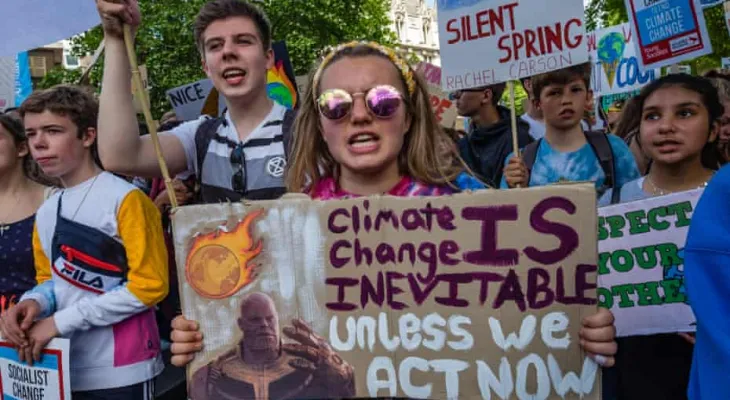
Children are at 'existential risk' due to climate crisis, says leading UK pediatrician
The climate crisis poses an "existential risk" to the health and wellbeing of all children and immediate action is needed to address it, Britain's most senior pediatrician has said.
Dr. Camilla Kingdon, president of the Royal College of Paediatrics and Child Health (RCPCH), said in a large-scale intervention that all young people were at serious risk from the physical and psychological effects of the climate crisis. Medical professionals are already seeing the effects firsthand, she added.
Air pollution, extreme weather and unprecedented energy costs have a very real and harmful impact on millions of children, she said. But as a country, we are “burying our heads in the sand” when it comes to the climate crisis.
Mr Kingdon attacked Rishi Sunak's purported rollback of the net zero policy, saying it would leave the country's most vulnerable children bearing the greatest burden.
Studies have found that temperatures are rising around the world as a result of the climate crisis, with devastating effects on fetuses, infants and children.
Scientists have found that the climate emergency is increasing the risk of premature birth and hospitalization of infants, as well as infant weight gain, among other negative effects. Studies have shown that pollution can stunt lung growth in children, cause asthma, and affect blood pressure, cognitive performance, and mental health.
"Climate change is no longer an issue of tomorrow, it's an issue of today," Kingdon said. "Health professionals across the UK are already seeing the impact first-hand."
In the UK, air pollution is the biggest environmental risk to public health, she added. “Children are especially vulnerable to air pollution because they breathe so quickly that they inhale more toxins from the air relative to their weight than adults who are exposed to the same air pollution. This can lead to childhood asthma and lifelong health problems.''
Mr Kingdon said the impact of the climate crisis on children was not limited to physical illness. ``The impact of climate change on children's mental health is likely to be significant and long-lasting.''
``Children are suffering from climate change, post-traumatic stress disorder, depression, anxiety, phobias, and sleep disorders.''
Mr Kingdon said there were serious health inequalities in the UK. As a result, some children suffered more from the negative effects than the majority, he said. “Climate change represents an existential threat to the health and well-being of all children. However, the current impacts of climate change are not equally recognized.”
Low-income households are paying more attention to where they live. The fewer options there are, the more likely it is. They live in disadvantaged areas and are therefore exposed to extreme weather and poor air quality, she added.
The climate crisis is causing increased winter rainfall in the UK and more wet and cold land. For low-income households, it can be too expensive to heat your home to the right temperature, and you are more likely to be exposed to cold and mold.
Kingdon said: “All children are at great risk of being affected by our changes.




















